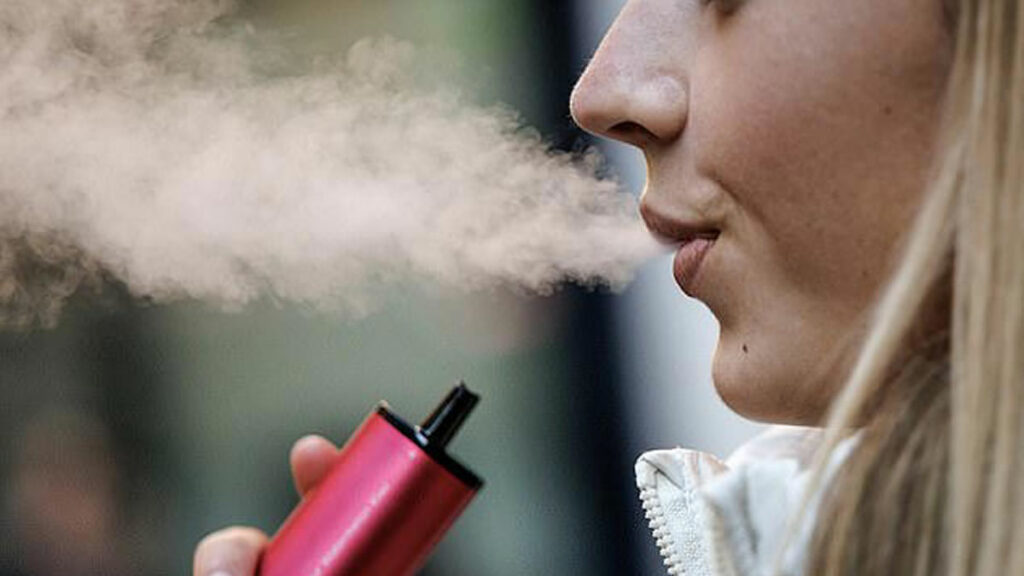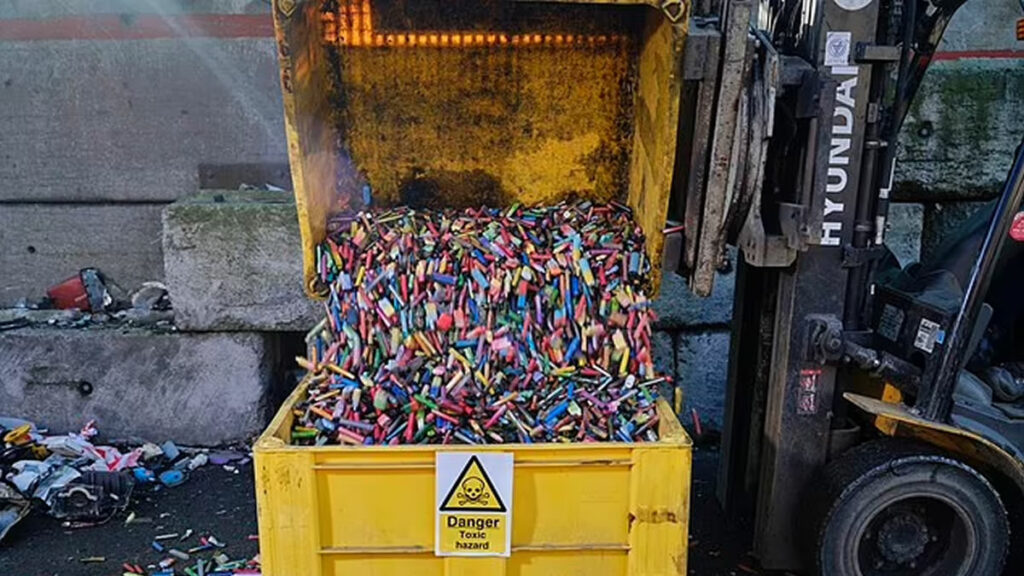As the UK prepares to implement a ban on single-use vapes in June, campaigners have raised concerns that the influx of new, cheaper “big puff” vapes and other styles will exacerbate the waste crisis the ban aims to address. These new models, which last longer but can be cheaper per puff than traditional single-use vapes, are causing alarm among environmental advocates who fear they may circumvent the upcoming regulations.
Research Reveals Surge in Vape Waste and Big Puff Vape Popularity
A study conducted by Opinium on behalf of campaign group Material Focus has shed light on the growing problem. According to the findings, an estimated 8.2 million big puff, single-use, and single-use pod vapes are thrown away or recycled incorrectly every week in the UK, amounting to 13 per second. This marks a significant increase from the five million single-use vapes being discarded weekly in 2023.
The research also highlights the soaring popularity of big puff vapes, which can hold up to 6,000 puffs per device compared to the average of 600 for single-use vapes. Consumers now purchase approximately three million big puff vapes each week, accounting for 63% of all puffs taken. Despite their larger capacity, these vapes come at a lower price per puff (0.19p) than single-use vapes (0.83p).

Younger Demographics Embrace New Vape Styles
The study reveals that the popularity of big puff vapes and other new styles is particularly evident among younger age groups. Forty-eight percent of 16 to 34-year-olds purchase these new styles, compared to 36% of 35 to 55-year-olds. Overall, vape purchases have increased by 37% to 13.5 million per week, up from 9.9 million per week in the previous year.
Environmental Challenges and Concerns Over Battery Fires
Material Focus predicts that the influx of big puff vapes and other new models will lead to significant environmental challenges that persist beyond the implementation of the single-use vape ban in June. Scott Butler, executive director of the group, emphasizes the need for more flexible legislation to address the ongoing issues posed by the rapidly evolving vape market.
In addition to the waste crisis, campaigners have expressed concerns over the risk of lithium-ion batteries used in these products causing fires, contributing to air pollution, and negatively impacting nature and wildlife. The number of battery fires in the waste stream has increased by 71% in the past year, rising from 700 in 2022 to more than 1,200, according to Material Focus.
Recycling Challenges and Opportunities
While the research indicates that vape recycling has increased in recent months, with 20% of people returning single-use vapes to stores for recycling compared to 8% last year, 77% of UK vapers still report a lack of sufficient information on proper vape recycling practices.
Material Focus highlights the potential for recycling the valuable materials found in vapes, such as lithium and copper, which could be used to power electric car batteries. The campaign group calls for a rapid expansion of accessible and visible vape recycling drop-off points in stores, parks, public spaces, schools, and universities.
Government and Industry Response
The UK government has announced plans to make vape producers and online marketplaces contribute to a fund supporting the recycling and waste management of e-products. Circular Economy Minister Mary Creagh emphasizes the government’s commitment to ending the nation’s throwaway culture and moving towards a circular economy.
However, the Independent British Vape Trade Association (IBVTA) disputes Material Focus’ findings, stating that its members have observed small increases in refillable vape sales and a significant drop in single-use vape sales. The IBVTA encourages consumers to switch to refillable and rechargeable devices to reduce environmental impact and promote a more sustainable approach to vaping.
As the UK navigates the challenges posed by the evolving vape market and the impending single-use vape ban, it is clear that a multi-faceted approach involving legislation, industry cooperation, and consumer education will be crucial in addressing the growing waste crisis and minimizing the environmental impact of these products.
- Myanmar Enacts Total Ban on E-Cigarettes and E-Shisha - February 25, 2026
- UK Announces Mandatory Vape Tax and Duty Stamps from 2027 - February 10, 2026
- Sri Lanka Travel 2026: Total Ban on Cigarettes & Vapes - February 5, 2026


